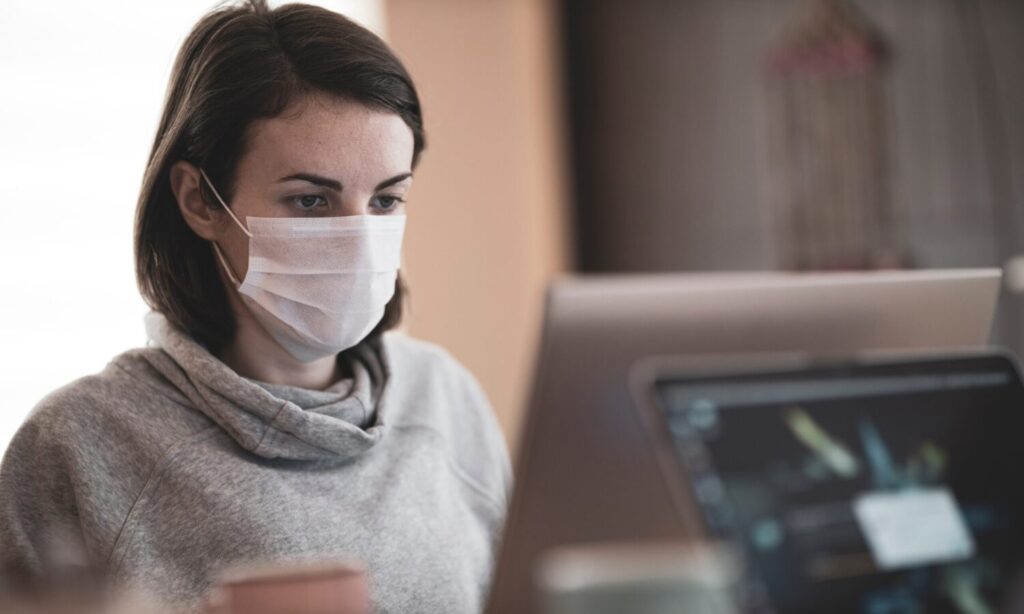Face masks are proven tools against COVID-19. Can they provide protection if you’re the only one wearing them?
United States mask mandates are changing. Now that COVID-19 cases are dropping and 70% of people in the country have developed immunity, the Centers for Disease Control (CDC) want to give people “a break from things like mask-wearing,” which, okay. Can face masks still offer some protection if you’re the only one wearing them?
According to Popular Science, which conducted an overview of some research, the answer is yes. They referenced a study published in the CDC that surveyed 1,800 people in California and showed that even though masks are better at preventing you from spreading COVID-19 to others, they still provide significant protection. It said that people who wore masks were 50% less likely to get COVID-19 than those who didn’t.
RELATED: 5 Most Common Face Mask Mistakes

Still, not all masks are equal. As we’ve written about before, the face mask you wear is very important. A study showed that surgical masks were 95% more efficient at filtering out particles when compared to cloth masks, which only provide 35% of protection. The most useful masks in order of effectiveness are KN95, surgical masks and cloth masks in last place.
While your odds of catching COVID-19 will increase if others around you are not wearings masks, wearing a face mask while COVID-19 rates are down in your area should provide some protection that should give you some peace of mind.
If you still want a little bit more safety, an N95 mask has proven to provide up to 95% of protection from COVID-19 particles. Just make sure that it fits snugly against your cheeks and jaw.
RELATED: Indoor Face Masks Are Optional — Here’s What That Means For Vaccinated People
Lastly, remember that face masks are just one part of an effective safety plan against COVID-19; it’s always important to account for factors like your preexisting health conditions, the rate of infection in your area and the type of activity you’re participating in.


